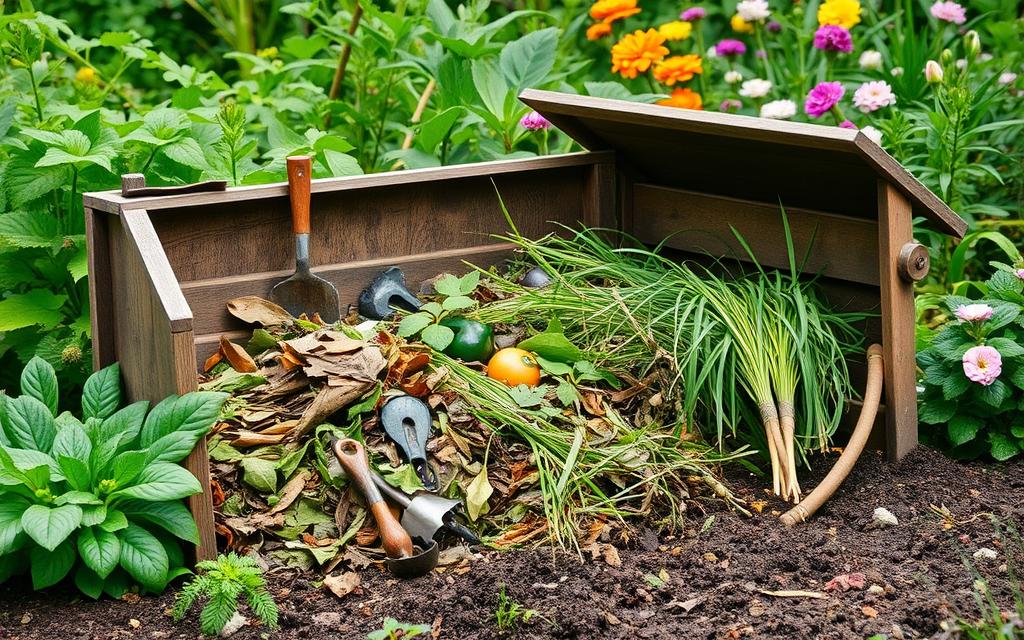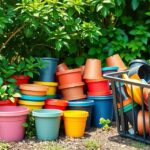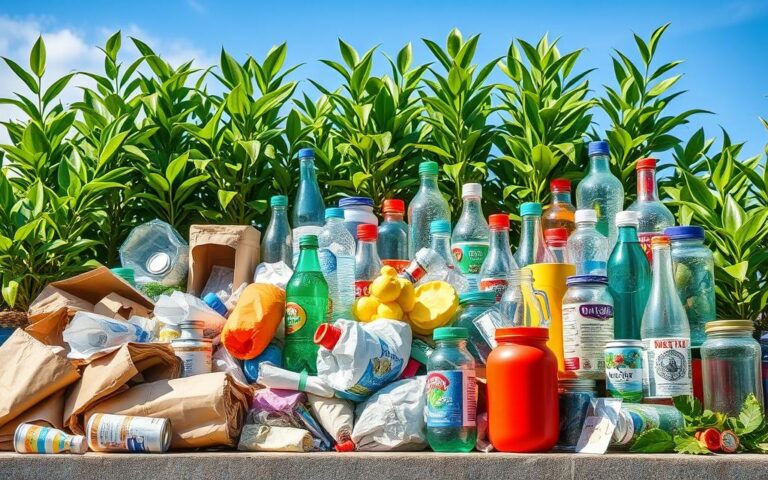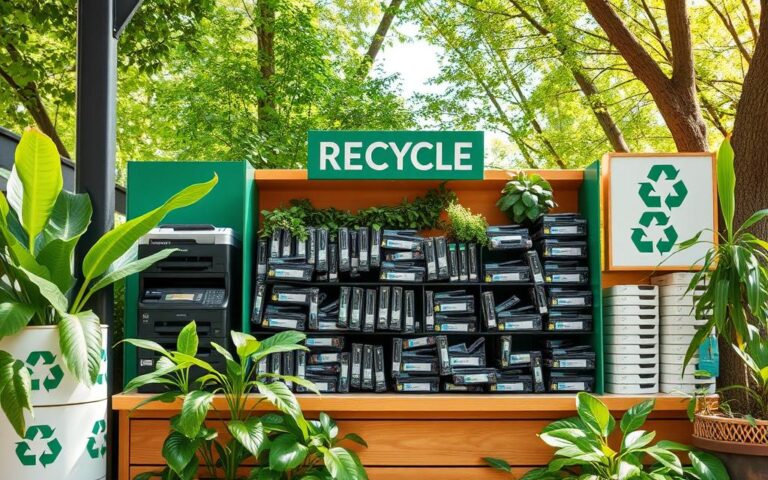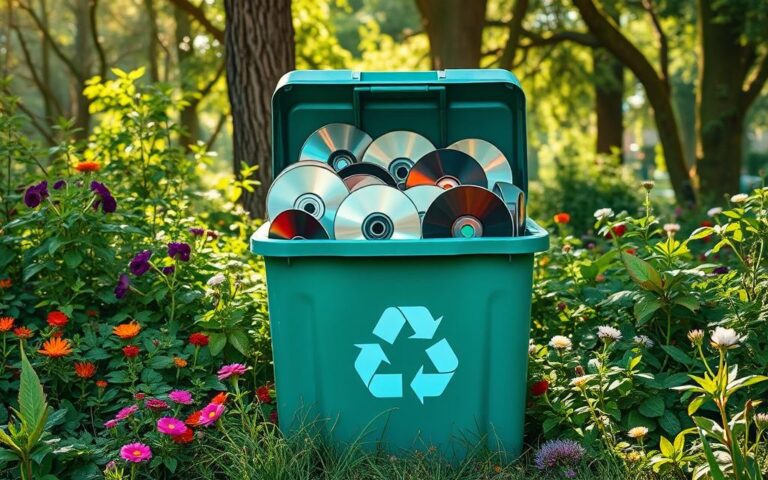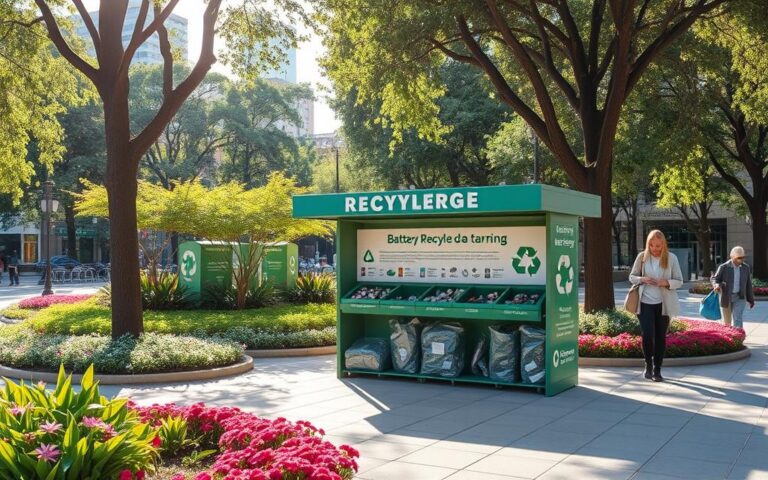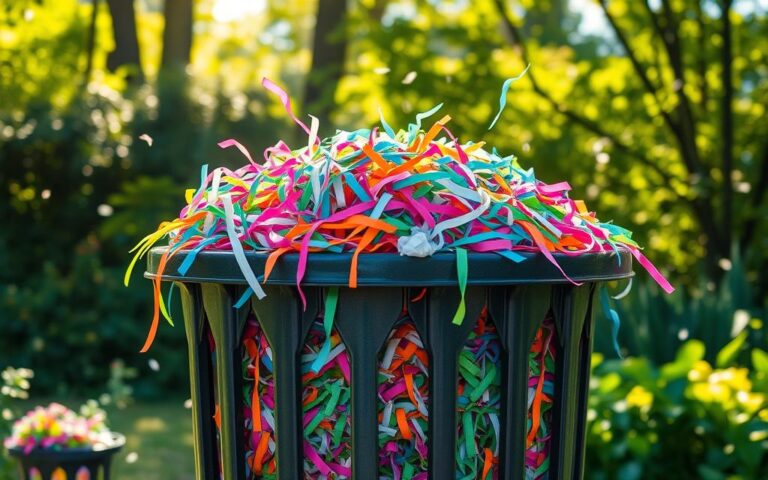How to Recycle Garden Waste: Green Disposal Options
Recycling garden waste significantly boosts ecosystem health. It’s a key part of sustainable gardening. Statistics reveal that food scraps and yard refuse make up over 28% of household rubbish. Thus, it’s essential for homeowners to adopt green disposal methods. Since 2022, laws like SB 1383 have been in place. They require areas to collect organic waste. This helps communities handle their organic rubbish better. Techniques like composting, grasscycling, and making your own mulch can lessen your rubbish footprint. They also improve your garden. This article will explore several recycling methods to help your garden and the earth.
Understanding Garden Waste and Its Impact
Understanding garden waste and its effects is key to being more eco-friendly. We need to know what garden waste is and how it affects our planet. This will help us manage it better.
Definition of Garden Waste
Garden waste comes from our gardens and landscapes. It includes things like:
- Grass clippings
- Leaves
- Branches
- Pruning waste
We must identify these materials correctly. Doing so ensures they’re disposed of in a way that’s kind to Earth.
Environmental Consequences of Poor Waste Disposal
Badly managed garden waste harms nature. If we send this waste to landfills, it releases methane. Methane traps heat in our atmosphere much more than carbon dioxide.
The harm doesn’t stop with the air. It also affects soil and water as the waste breaks down without oxygen. So, disposing of garden waste properly is vital. It keeps our environment healthy.
Benefits of Recycling Garden Waste
Recycling garden waste has many benefits that help the environment and improve gardening. By recycling, homeowners reduce their ecological footprint and boost their garden’s health.
Reducing Landfill Contribution
Organic materials make up 20 to 30 percent of municipal waste. Recycling garden waste helps cut down on what ends up in landfills. This reduces pollution and greenhouse gas emissions. Choosing composting over traditional disposal keeps organic waste out of landfills, aiding environmental health.
Enhancing Soil Health and Fertility
Using grass clippings and leaves as mulch or compost can greatly boost soil quality. These practices enrich the soil with necessary nutrients.
- Grass clippings help the soil hold moisture, supporting healthier grass growth.
- Recycled leaves add nitrogen to the soil, making it better for plant health.
- Organic mulch is a natural alternative to chemical fertilizers, keeping soil balanced.
With cities offering green waste bins, it’s easier for communities to recycle garden waste. This leads to less trash in landfills and healthier garden soil.
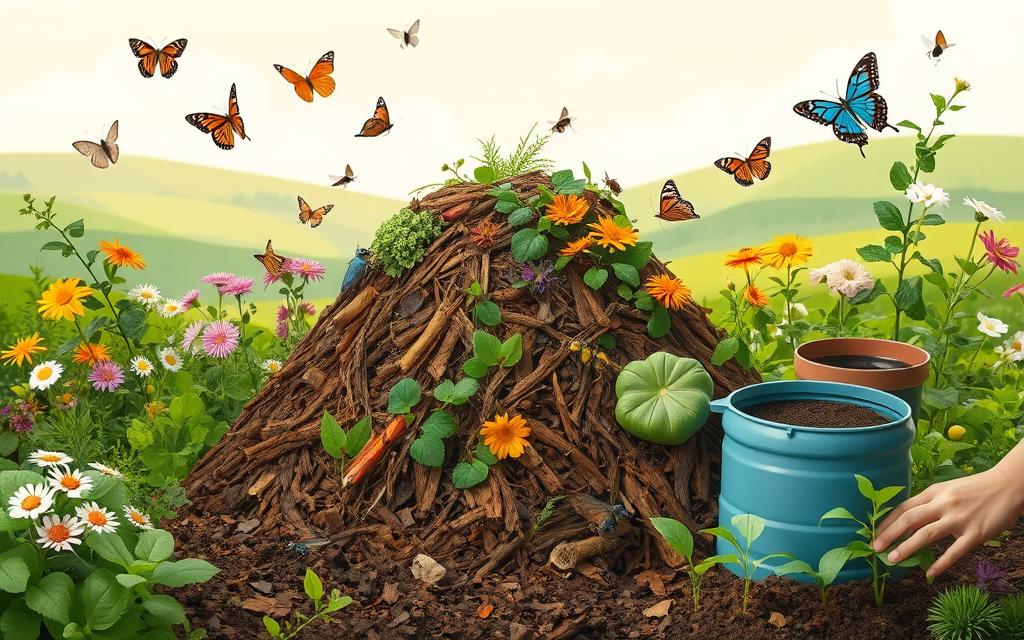
| Method | Impact on Landfill | Effect on Soil Health |
|---|---|---|
| Composting | Significantly reduces waste volume | Provides rich organic matter |
| Grasscycling | Minimises green waste disposal | Enhances moisture retention |
| Mulching | Limits landfill contribution | Improves nutrient availability |
How to Recycle Garden Waste: Green Disposal Options
Recycling garden waste is crucial for sustainability and reducing environment harm. It not only improves gardens but also helps the ecosystem. By looking at traditional and new disposal methods, homeowners have many options.
Traditional Methods of Recycling
Composting is a great way to turn garden waste into useful soil. It breaks down organic stuff like leaves, kitchen scraps, and lawn cuttings. Along with grasscycling, it offers several benefits. Grasscycling is when you leave lawn cuttings on the ground after mowing.
Doing this can save a lot of yard work time. It can also cut down carbon emissions by 5% for each household yearly. Plus, grasscycling means you can use less nitrogen fertiliser.
- Composting: Turns waste into valuable soil for the garden.
- Grasscycling: Saves effort and helps your lawn grow strong.
- DIY Mulching: Lets you use waste and can cut landscaping costs by 30%.
Innovative Green Disposal Techniques
Now, there are new ways to deal with garden waste. Many towns, about 80%, offer services for collecting organic waste. This is thanks to laws for better sustainability. Renting a wood chipper can help deal with big debris, making wood chips for your garden.
Hiring skip bins or waste services is popular, especially in busy garden times. This has increased skip bin hire by 25%. With more people trying these ways, garden waste recycling is having a bigger impact. Around 35% of homes are now doing their part.
Grasscycling for a Healthier Lawn
Grasscycling makes lawn care better and eco-friendlier. It means leaving grass clippings on your lawn to decay. This way, they nourish the soil with vital nutrients. The perks of grasscycling go beyond being good for the planet, like less waste. It also ensures your lawn stays healthy.
What is Grasscycling?
Grasscycling is an easy yet very effective lawn care method. It removes the need to gather and throw away grass clippings. By following the steps for grasscycling, you can save money on fertiliser and watering. Studies say grasscycling could reduce your need for fertiliser by 15-20%. This makes lawn care better for the environment.
Steps to Implement Grasscycling
To start grasscycling, keep your lawn 2.5 to 3.5 inches tall. Make sure your mower blades are sharp for quick clipping decay. Water your lawn deeply but not too often. This helps roots grow deep. On the other hand, too much water can weaken your lawn.
Also, mulch the leaves that fall on your lawn with the clippings. This will improve the soil more. It leads to a healthier lawn care routine.
FAQ
What is garden waste?
Garden waste means organic bits from gardens and landscapes like grass bits, leaves, and branches. Knowing this helps ensure we throw it away rightly.
Why is it important to recycle garden waste?
Recycling garden stuff helps cut down what we dump and lessens pollution. It makes soil better and reduces the need for harsh fertilizers.
What are some traditional methods of recycling garden waste?
Old ways to reuse garden waste include making compost from organic material. Grasscycling lets grass bits feed the soil. Creating your mulch from garden bits is also smart.
How does grasscycling benefit my lawn?
Grasscycling feeds your lawn by letting cut grass break down on it. It means needing less fertilizer, having a lush lawn, and less rubbish to handle.
What innovative techniques are available for recycling garden waste?
New methods include better waste pickup services and using machines like wood chippers for mulch. These ways help everyone take part in green habits and make gardens look good.
What environmental consequences result from poor garden waste disposal?
Dumping garden waste badly can cause big problems like methane at dumps, a nasty gas. It also pollutes and damages nature nearby.
How can I start composting my garden waste?
To start composting, collect organic stuff like leaves and kitchen bits. Put them in a pile or bin. Keep the mix stirred and airy to help it break down.

